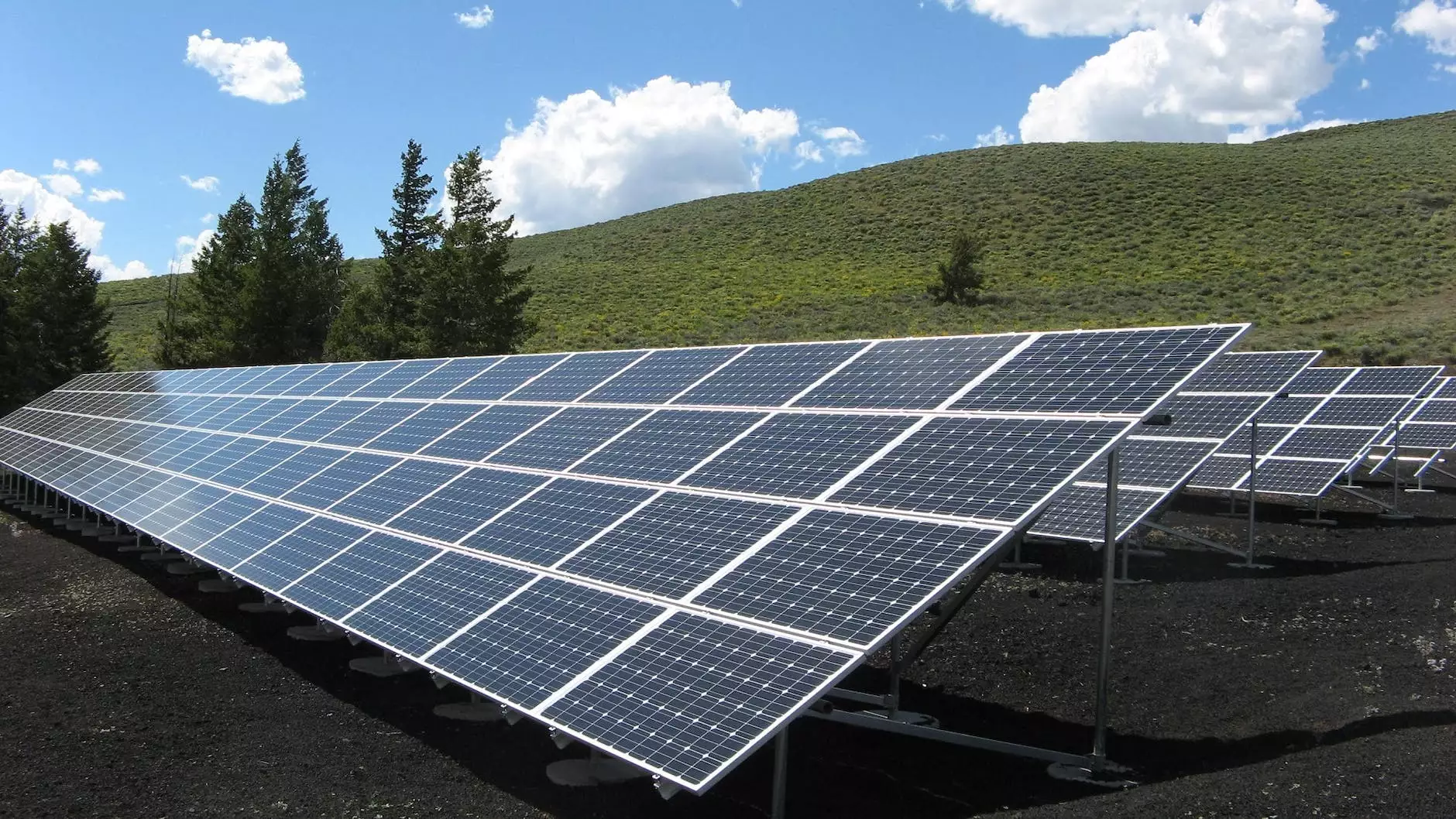Solar Power for Dummies - Empowering the Future with Renewable Energy

Introduction
In today's world, where sustainability and environmental consciousness are becoming increasingly important, solar power has emerged as a reliable and highly efficient source of renewable energy. As a leading advocate for clean energy solutions, Renewable Energy Hub is committed to promoting and educating individuals about the benefits of solar power. In this comprehensive guide, we will walk you through the fundamentals of solar power, providing you with the knowledge and understanding needed to embrace this innovative technology.
Why Solar Power?
Solar power offers a myriad of benefits, both for individuals and the environment. By harnessing the power of the sun, solar energy systems can generate electricity without producing any harmful greenhouse gas emissions. This environmentally-friendly nature makes it an ideal alternative to traditional fossil fuel-based power generation methods. Additionally, solar power provides energy independence, as it allows individuals to produce their own electricity and reduce dependency on external energy providers.
The Science Behind Solar Power
Solar power is based on harnessing the energy from the sun using photovoltaic (PV) cells. These cells, typically made from silicon, convert sunlight into direct current (DC) electricity through a process known as the photovoltaic effect. The DC electricity is then converted into alternating current (AC) through an inverter, making it suitable for use in homes and businesses. This transformative process enables solar power systems to generate clean and sustainable energy, reducing our reliance on non-renewable resources.
Solar Power Systems
There are two main types of solar power systems: grid-tied and off-grid systems.
1. Grid-Tied Systems
Grid-tied systems are connected to the local power grid, allowing for a seamless exchange of electricity. These systems consist of solar panels, an inverter, and a metering system. When the solar panels generate excess electricity, it can be fed back into the grid, earning the system owner credits or monetary compensation through net metering programs. Grid-tied systems are popular for their simplicity and cost-effectiveness.
2. Off-Grid Systems
Off-grid systems, also known as standalone systems, are not connected to the power grid. They are designed to operate independently and rely on batteries to store excess electricity for use during non-sunny periods. Off-grid systems are commonly used in remote areas where grid access is limited, providing energy solutions where traditional power sources are impractical or unavailable.
The Benefits of Solar Power
Switching to solar power brings numerous advantages that contribute to a greener and more sustainable future:
- Reduced Electricity Bills: By generating your own electricity, you can significantly reduce or even eliminate your monthly electricity bills, saving money in the long run.
- Eco-Friendly Solution: Solar power is a clean energy alternative that reduces the carbon footprint and helps combat climate change by avoiding harmful greenhouse gas emissions.
- Energy Independence: Solar power allows you to take control of your energy production, reducing reliance on the fluctuating costs of conventional grid electricity.
- Long-Term Investment: Installing solar panels increases the value of your property and provides a long-term return on investment, making it an economically sound decision.
- Job Creation: The rapid growth of the solar industry leads to job creation, creating employment opportunities that contribute to local economies.
Installing Solar Power Systems
Installing a solar power system is a straightforward process that requires careful planning and consideration. Here are the key steps involved:
- Energy Audit: Assess your current energy usage to determine the appropriate system size and energy requirements.
- Financial Analysis: Evaluate the cost savings and return on investment (ROI) of installing solar panels.
- System Design: Work with solar professionals to design a customized system tailored to your specific needs.
- Permitting and Paperwork: Obtain the necessary permits and complete the required paperwork for system installation.
- Installation: Experienced solar installers will handle the installation of solar panels and associated equipment.
- Commissioning and Monitoring: Once the installation is complete, the system will be commissioned and connected to the grid, enabling you to monitor its performance.
Conclusion
Solar power has emerged as a game-changer in the quest for sustainable energy solutions. Its abundant availability and numerous benefits make it an attractive choice for both individuals and businesses alike. By embracing solar power, we pave the way for a greener future, reduce our carbon footprint, and contribute to a more resilient and sustainable world. To learn more about solar power and its implementation, visit our website RenewableEnergyHub.co.uk and join the renewable energy revolution today!
solar power for dummies








